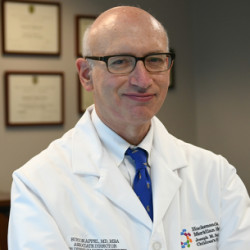Most children and young adults with cancer become long term survivors. Hematologists and oncologists who treat young patients are acutely aware of the potential effects of a cancer diagnosis and treatment on future fertility. Many programs have multidisciplinary teams dedicated to “oncofertility”, charged with the task of assessing the risk of impaired fertility due to planned treatment at the time of initial cancer diagnosis or relapse and to discuss options for fertility preservation prior to receiving gonadotoxic therapy.
The term “oncofertility” only tells part of the story–it leaves out the patients with benign blood disorders who may be at high risk of infertility due to the disease itself or its treatment. Consequently I am thrilled to see that ASH has devoted an entire Education Session on Sunday December 11 to the topic of Reproductive and Sexual Health in Sickle Cell Disease. Speakers at this session include Lydia H. Pecker MD, the lead author of recent papers in Blood as well as the British Journal of Haematology that examine the impact of sickle cell anemia on ovarian reserve and other aspects of reproductive health. Dr. Pecker will address the topic of Fertility of Women with Sickle Cell Disease. Lillian Meacham MD, author of key studies that guide our assessment of the impact of chemotherapy agents on fertility, will also speak at this session on Decision Making for Reproductive Health in Sickle Cell Disease.
Curative therapies for life-limiting hematologic disorders such as sickle cell anemia and thalassemia are here–more and more of our young patients are candidates for stem cell transplants and gene therapy. These “cured” hematology patients, like their peers who are cancer survivors, deserve equal access to fertility preservation, including new or experimental procedures such as ovarian or testicular cryopreservation for the youngest patients. In order to educate our patients and make appropriate and timely referrals for fertility preservation, the hematology community needs to understand the impact of these benign but life-limiting diseases on our patients’ reproductive health. It’s exciting to have a session about sickle cell anemia that is not devoted primarily to issues of morbidity and mortality. I’m proud that ASH is giving us the opportunity to hear from leaders in this field, and encourage everyone to attend.
Dr. Appel has no conflicts of interest to report.
Image by gmast3r / Getty







